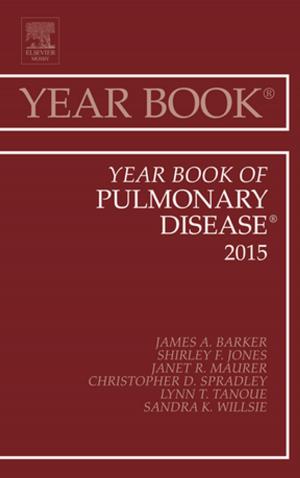Vitamin B12 Deficiency and Chronic Illness
Nonfiction, Health & Well Being, Health, Nutrition & Diet, Vitamins, Ailments & Diseases| Author: | Mike Newman | ISBN: | 9781370608997 |
| Publisher: | Mike Newman | Publication: | December 9, 2016 |
| Imprint: | Smashwords Edition | Language: | English |
| Author: | Mike Newman |
| ISBN: | 9781370608997 |
| Publisher: | Mike Newman |
| Publication: | December 9, 2016 |
| Imprint: | Smashwords Edition |
| Language: | English |
Vitamin B12 Deficiency is now being revealed as one of the most misunderstood conditions of the 21st century. The potential for it to result in permanent nerve damage and varying levels of disability irrespective of the amount of B12 replaced in the blood is slowly being recognized by modern clinicians. Yet this is knowledge which is not emerging, but re-emerging, because physicians who dealt with this illness a century ago were well aware of the long-term implications. They were also aware of an underlying cause - low stomach acid. In addition, they understood that patients suffering from the condition would also have stomach atrophy, gut dysbiosis and intestinal permeability - in themselves conditions which could give rise to further ailments relating to mental health issues, autoimmune conditions and a broad range of what we today recognize as chronic diseases.
Yet for decades these issues, once well recognized, have been forgotten, and patients of the 21st century are often given advice and treatment which fails to combat not only the injuries caused by a deficiency of Vitamin B12, but which may well be misinterpreted as other, often untreatable conditions, or, as is possibly the case, that the underlying cause of the B12 deficiency may also be the cause of other illnesses.
This book aims to pave the way in setting the record straight. It aims to help both patients and clinicians to deepen their understanding in respect of a condition which was once feared and which, it would seem, still exists but is simply not recognized for what it is. It also aims to explain to those with other chronic and neurological conditions that a deficiency of B12 might prove to be a cause of at least some of their symptoms, and that the cause of any deficiency, even outside of B12 may well be impacting their health.
Chapters include information on: Subacute Degeneration of the Spinal Cord, Symptoms, Dysaesthesia, Paraesthesia or Polyneuropathy, Restricted Diets and Assumptions, Low Stomach Acid, Digestion, Gut Dysbiosis, Intestinal Permeability (Leaky Gut Syndrome), Autointoxication, Biofilms, Neurological Injury and Exercise, Motor Neuron Disease and Methylcobalamin and Folate, in addition to many other sections which include the difficulties involved in diagnosing neurological damage through to suggestions for mitigating dysbiosis and improving absorption of all nutrients. There is also a special chapter covering miscellaneous issues where subjects such as suicide, depression, relapsing, nitrous oxide, vegetarians, B12 supplementation and many more issues are discussed broadly rather than in detail.
Vitamin B12 Deficiency is now being revealed as one of the most misunderstood conditions of the 21st century. The potential for it to result in permanent nerve damage and varying levels of disability irrespective of the amount of B12 replaced in the blood is slowly being recognized by modern clinicians. Yet this is knowledge which is not emerging, but re-emerging, because physicians who dealt with this illness a century ago were well aware of the long-term implications. They were also aware of an underlying cause - low stomach acid. In addition, they understood that patients suffering from the condition would also have stomach atrophy, gut dysbiosis and intestinal permeability - in themselves conditions which could give rise to further ailments relating to mental health issues, autoimmune conditions and a broad range of what we today recognize as chronic diseases.
Yet for decades these issues, once well recognized, have been forgotten, and patients of the 21st century are often given advice and treatment which fails to combat not only the injuries caused by a deficiency of Vitamin B12, but which may well be misinterpreted as other, often untreatable conditions, or, as is possibly the case, that the underlying cause of the B12 deficiency may also be the cause of other illnesses.
This book aims to pave the way in setting the record straight. It aims to help both patients and clinicians to deepen their understanding in respect of a condition which was once feared and which, it would seem, still exists but is simply not recognized for what it is. It also aims to explain to those with other chronic and neurological conditions that a deficiency of B12 might prove to be a cause of at least some of their symptoms, and that the cause of any deficiency, even outside of B12 may well be impacting their health.
Chapters include information on: Subacute Degeneration of the Spinal Cord, Symptoms, Dysaesthesia, Paraesthesia or Polyneuropathy, Restricted Diets and Assumptions, Low Stomach Acid, Digestion, Gut Dysbiosis, Intestinal Permeability (Leaky Gut Syndrome), Autointoxication, Biofilms, Neurological Injury and Exercise, Motor Neuron Disease and Methylcobalamin and Folate, in addition to many other sections which include the difficulties involved in diagnosing neurological damage through to suggestions for mitigating dysbiosis and improving absorption of all nutrients. There is also a special chapter covering miscellaneous issues where subjects such as suicide, depression, relapsing, nitrous oxide, vegetarians, B12 supplementation and many more issues are discussed broadly rather than in detail.















